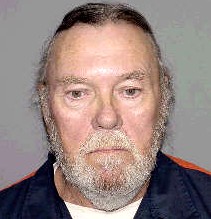
Background
Defendant John Rodney McRae was
convicted of first-degree murder in a 1998 jury trial.
The victim was 15-year-old Randy
Laufer, last seen on September 15, 1987. In 1997, Laufer's bones were
found buried on a property that had been McRae's family residence in
Michigan before the family moved to Arizona. One of the pieces of
evidence linking McRae to the crime was a conversation that McRae had
after his arrest with a reserve police officer, Dean Heintzelman, who
had been McRae's neighbor before McRae moved from Michigan.
According to Heintzelman's
testimony, he visited McRae in jail after hearing that McRae had asked
why Heintzelman had not visited him. According to Heintzelman, the
request came from McRae's wife through Heintzelman's mother. During the
visit, Heintzelman was in uniform with a badge.
He testified later, "And then I
said -- I asked John -- I said, 'John, did you do what you're charged
with here?' And he didn't answer me. So we just went talkin' again about,
well, more or less about Marty [McRae's son] again. And I said, 'Well,
you know, they think Marty had something to do with that, you know, with
Randy.' And he says, 'Well, if they try to pin it on Marty, I'll let'em
fry my ass.' And that was his words. I said, 'John, did you do it?' And
he just hung his head down and said, 'Dean, it was bad. It was bad.'
That's -- we didn't discuss it any more."
Before the conversation, McRae had
invoked his Fifth Amendment right not to answer questions. In addition,
he had requested and had received appointment of counsel at arraignment.
On appeal, McRae challenged the admission of Heintzelman's testimony. In
an unpublished opinion, the Court of Appeals concluded that any error in
admission of the testimony was harmless beyond a reasonable doubt.
After the Supreme Court remanded to
the Court of Appeals, the Court of Appeals again affirmed McRae's
conviction, stating that Heintzelman was not acting as a police officer
in interrogating defendant, but was acting as a friend and having a
conversation. Accordingly, no Miranda warning was required because
governmental action was not involved, the Court of Appeals stated. McRae
appeals.
No comments:
Post a Comment